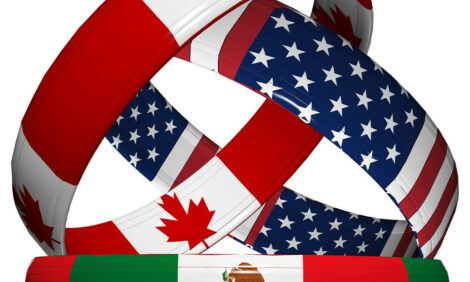



FAO Food Price Index Almost Unchanged
GLOBAL - World food prices remained virtually unchanged between July and August 2011 according to the FAO Food Price Index published today.The Index averaged 231 points last month compared to 232 points in July. It was 26 per cent higher than in August 2010 but seven points below its all-time high of 238 points in February 2011.
Within the index, cereals prices rose, reflecting the fact that although cereal production is expected to increase, it will not do so by enough to offset the additional demand, so that stocks continue to be low and prices continue to be high and volatile.
The FAO Cereal Price Index averaged 253 points in August, up 2.2 per cent, or 5 points, from July and 36 per cent higher than in August 2010. However, the firmer cereal prices were largely offset by declines in international prices of most other commodities included in the Food Price Index, oils and dairy products in particular.
Production rebound
Cereal price rises stem from a supply and demand balance that remains tight despite the anticipated increase in production. World cereal production in 2011 is now forecast to reach 2 307 million tonnes, 3 per cent higher than in 2010. But this latest forecast is nearly 6 million tonnes lower than the previous forecast published in July.
Among the major cereals, the maize supply situation is a cause for concern following downward revisions to maize crop prospects in the United States, the world's largest maize producer, because of continued hot weather in July and August.
Average wheat prices were also up 9 per cent in August given the strong demand for feed wheat and shrinking supplies of high quality wheat. Nonetheless, world wheat production is forecast to increase by 4.3 per cent (or 28 million tonnes), only 4 million tonnes below the 2009 record.
World coarse grain production is still heading for a record level of 1 147.5 million tonnes, up 2.4 per cent (or 27 million tonnes) from 2010, in spite of lowered maize production prospects in the United States, the world's largest maize producer.
Rice price gains
Rice prices also gained with the benchmark Thai rice price up 5 per cent from July, driven by a policy change in Thailand, the world's largest rice exporter, where paddy rice will be purchased from farmers at above market prices.
Global rice production prospects remain favourable, however, with output set to reach a new high of 479 million tonnes, up 2.5 per cent from 2010.
Low inventories
Total cereal utilization in 2011/12 is forecast to increase by 1.4 per cent, almost matching anticipated 2011 production. As a result, global cereal inventories by the close of seasons in 2012 are likely to remain close to their already low opening levels. Only rice stocks are expected to increase significantly, supported by record production.
Wheat inventories are likely to decline to their lowest level since 2009 and world stocks of coarse grains are also forecast to plunge, with maize inventories falling to 124 million tonnes, their lowest level since 2007. Given the tight global supply and demand balance for coarse grains, its stocks-to-use ratio is forecast to fall to a historical low of 13.4 per cent.
The FAO Oils/Fats Price Index averaged 244 points in August, following a declining trend since March but still remaining high in historical terms.
The FAO Dairy Price Index averaged 221 points in August, significantly down from 228 points in July and 232 points in June, but still 14 per cent higher than the same period last year.
The FAO Meat Price Index averaged 181 points in August, up 1 per cent from July.
The FAO Sugar Price Index averaged 394 points in August, down 2 per cent from July, but still 50 per cent higher than in August 2010.






